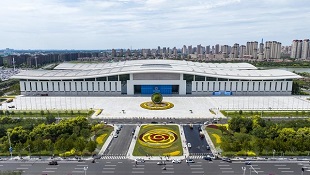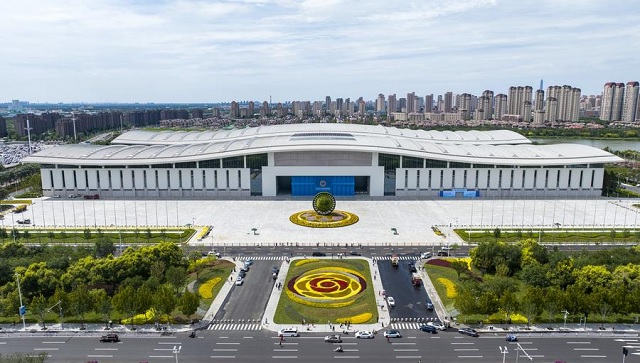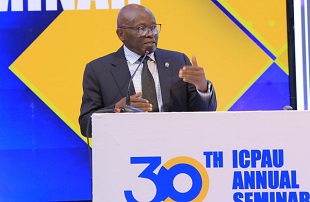Why China-proposed Global Governance Initiative comes at the right time


BEIJING, CHINA | Xinhua | China’s newly proposed Global Governance Initiative (GGI) has captured growing attention in recent weeks, with observers hailing it as Beijing’s latest and timely response to pressing global challenges and a call for building a fairer and more inclusive international system.
First unveiled at the Shanghai Cooperation Organization (SCO) summit in Tianjin on Sept. 1, the GGI has since been reiterated by China in bilateral meetings, multilateral forums, diplomatic statements, and most recently at this week’s virtual BRICS summit.
The initiative outlines five core principles: adhering to sovereign equality, abiding by international rule of law, practicing multilateralism, advocating the people-centered approach, and focusing on taking concrete actions.
Analysts believe the launch of the GGI reflects both the urgency of today’s global challenges and the growing role of emerging markets and Global South countries in international affairs. Against a backdrop of overlapping crises and rising unilateralism, platforms such as the SCO and BRICS offer natural venues for advancing the initiative and amplifying the voices of the Global South.
Timely response to global challenges
Analysts say the timing of the GGI reflects growing global crises marked by geopolitical tensions, economic uncertainties, regional conflicts, and public health challenges.
Economic globalization in the past decades has deepened interdependence among nations and benefited billions of people; however, gap between the rich and the poor keeps enlarging, and persistent poverty continues to plague places like Africa.
Terrorism, refugee crises, rampant infectious diseases, frequent geopolitical conflicts, severe poverty, and climate change are becoming increasingly prominent challenges, said Wang Fan, president of China Foreign Affairs University.
“No country can remain immune; only by strengthening global governance can humanity truly work together in the same boat,” Wang added.
At the same time, unilateralism and “country-first” approaches have gained ground in some regions, accompanied by unilateral bullying that disrupts the international order. Taken together, these crises have exposed deep flaws in the global governance system.
Wang Yiwei, director of the Institute of International Affairs at Renmin University of China, highlighted three core problems of the current global governance system: the underrepresentation of the Global South, the erosion of international law by unilateral actions, and lagging effectiveness in addressing urgent issues like climate change, the digital divide and emerging fields such as AI and outer space.
“Deficits in peace, development, security, and trust are deepening, while existing mechanisms struggle to respond,” Wang Fan said. “Advancing reform of global governance is the only way to bridge these gaps.”
SCO AND BRICS: Platforms for inclusiveness
The choice of the SCO summit as the platform to announce the GGI was well-considered and meaningful. With members including China, Russia, and India, the SCO represents nearly half the world’s population and a quarter of global GDP.
This year’s SCO Tianjin summit was the largest ever, attended by leaders from more than 20 countries and heads of 10 international organizations, mostly from the developing world.
A similar dynamic exists within BRICS. This makes them both ideal platforms to promote an initiative aimed at more equal and inclusive global governance.
The GGI also directly responds to long-standing concerns of developing nations, whose voices have often been marginalized in global decision-making.
Despite their growing contributions, emerging economies, particularly the Global South, remain underrepresented in institutions like the IMF and World Bank, where BRICS countries’ voting shares are underestimated, said Ren Lin, from the Chinese Academy of Social Sciences.
“When the United Nations was founded 80 years ago, it had only 51 member states, and few Global South countries had gained independence from colonial rule,” Wang Yiwei pointed out.
Today, developing countries drive much of the world’s growth and represent the majority of its population. Their demands for fairness and inclusiveness can no longer be ignored.
The GGI seeks to make the international system more inclusive and effective by expanding the participation of developing countries in global decision-making, thereby ensuring that multilateralism and equality are truly practiced, said Abu Bakr al-Deeb, a political economy researcher and advisor to the Cairo-based Arab Center for Research and Studies.
Part of china’s global vision
The GGI marks the fourth landmark global initiative proposed by China over the past several years, following the Global Development Initiative, the Global Security Initiative and the Global Civilization Initiative.
In 2021, the Global Development Initiative was launched to promote global development amid the pandemic and a sluggish economic recovery.
In 2022, the Global Security Initiative followed, advocating win-win solutions to reduce risks and resolve conflicts.
In 2023, the Global Civilization Initiative was introduced in response to rising “clash of civilizations” rhetoric and widening cultural divides, calling for inclusiveness, coexistence, and mutual learning among civilizations.
From development and security to civilization and governance, China has consistently stepped forward with proposals rooted in Eastern wisdom and focused on practical solutions.
Together, these initiatives embody China’s vision for building a more just, inclusive, and future-oriented international order, and advancing the shared future for humanity. ■





























































